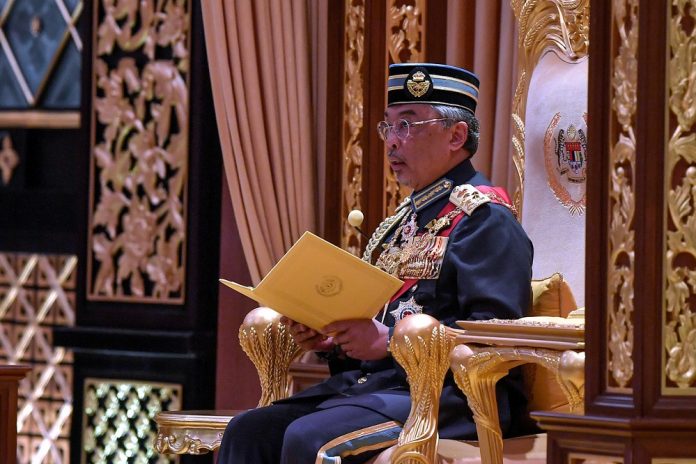
Subscribe to our Telegram channel for the latest updates on news you need to know.
KUALA LUMPUR, Feb 16 — More than 80 Southeast Asian lawmakers today expressed concern over Malaysia that is now under a national Emergency, a measure under the Federal Constitution that has not been used for decades.
The regional parliamentarians, in a signed statement, said they are worried over the excessively broad powers handed to Malaysian authorities under the Emergency and urged Yang di-Pertuan Agong Al-Sultan Abdullah Ri’ayatuddin Al-Mustafa Billah Shah, the Dewan Rakyat Speaker and Prime Minister Tan Sri Muhyiddin Yassin to convene Parliament as soon as possible.
Tom Villarin, a board member of Asean Parliamentarians for Human Rights (APHR) and a former Philippine member of parliament (MP) said: “The fact that so many lawmakers from across the region are speaking out shows the level of regional concern over the emergency’s impact on parliamentary democracy in Malaysia, and of possible long-lasting implications this could have on the lives of its people.
“We have seen how pandemic-related measures adopted in other Southeast Asian countries have increasingly restricted human rights and adequate safeguards must be put in place.”
The 89 former and current elected lawmakers from six countries also urged Speaker Datuk Azhar Azizan Harun to ensure that parliamentary committees are activated and that they meet regularly.
Villarin said while it is a priority for the government to tackle Covid-19, it is crucial that such responses take on a human rights-based approach and respect the rule of law.
“Instead, Malaysia’s state of emergency has not only concentrated excessively broad power in the executive but also removed any real oversight, leaving the door wide open for rights abuses,” he said.
On January 11, the Yang di-Pertuan Agong proclaimed a state of Emergency to curb the spread of Covid-19.
The Emergency Proclamation was made under Article 150(1) of the Federal Constitution and will last until August 1, but can end earlier or later depending on when the number of active Covid-19 cases can be brought under control again.
This will be decided by an independent task force consisting of both government and Opposition MPs, as well as health experts who will advise the King.
The lawmakers in the statement highlighted the far-reaching and unchecked powers of officials under the Emergency including additional powers for the armed forces, the suspension of parliament and state assembly sittings, the postponement of elections, and legal immunity for authorities’ acts conducted in “good faith.”
“These measures flout international standards, severely undermine democratic processes, and foster an environment ripe for potential abuse of power.
“Under international law, emergency measures must be necessary and proportionate in achieving the desired results, temporary, applied in a non-discriminatory manner, and subject to review,” the group said.
Villarin also described Muhyiddin’s unelected government as unstable since taking over last year.
“This latest move appears as a desperate attempt to cling to power, rather than effectively tackling a health crisis,” he said.
Villarin added that this was not the time to mute lawmakers in Malaysia.
“In times of a health crisis, it is even more important that parliament can function effectively to review the government’s actions and policies, including those in response to the pandemic. What the world needs now is more transparency and accountability, not governments shielded from public scrutiny,” he added.


